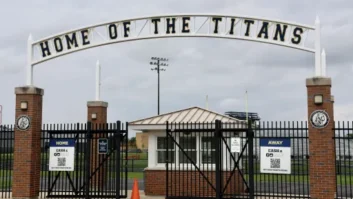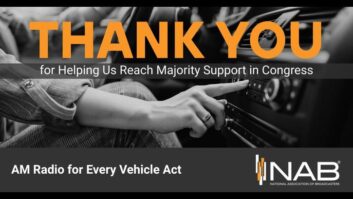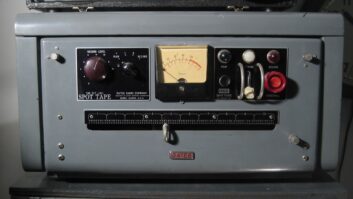
Jimmy Kamara, a class five pupil, listens to a radio lesson in his home.
Credit: UNICEF Sierra Leone/2015/Bade
FREETOWN, Sierra Leone — The Ebola epidemic that swept Sierra Leone in 2014 killed approximately 3,200 people and infected many more. To minimize the chance of further contagion, the country’s Ministry of Education, Science and Technology closed all levels of Sierra Leone’s schools on July 31 — cutting students off from their education with no reopening date in sight. Today, these schools remain closed.
MEST officials fear that Sierra Leone’s indefinite school shutdown could motivate some students to give up and instead enter the workforce, even though their education is incomplete and their chances for adequate employment limited. MEST has partnered with UNICEF and other aid agencies to program and broadcast a full range of school lessons via radio, to prevent students from dropping out.
Known as the Emergency Radio Education Programme (EREP), the MEST broadcasts are “designed to ensure that all school-aged children across the country are provided with a continued learning opportunity during the period school operations are disrupted by the EVD [Ebola virus disease] crisis,” said Wongani Grace Nkhoma Taulo, chief of education at UNICEF Freetown, Sierra Leone.
“More specifically, the objective of this program is a ‘stopgap’ measure to provide a continued learning opportunity to about 1.8 million children of pre-primary, primary and secondary-level ages in Sierra Leone whose education has been affected by the EVD emergency.”
“The impact of the EVD in creating a surge in out-of-school children is not to be underestimated and the increased household vulnerability cannot be overemphasized,” Taulo stressed. “There are already unconfirmed reports of increase in teenage pregnancies and child labor linked to indefinite closure of the schools.”
A RESPONSE TO CALAMITY
With Ebola raging throughout Sierra Leone and other West African nations in mid-2014, the government of Sierra Leone was focused on limiting infections when it closed the schools. It was only after the schools had been closed for some time, that MEST decided that an alternative form of education was required. It was then that the ministry turned to UNICEF for help.

“The idea of radio lessons was suggested,” said Taulo. “Most partners agreed on the feasibility of this option although there were differences on the modalities of making this happen and time frames for commencing the program,” she said.
“While discussions were still in progress, MEST made a decision to commence radio lessons from the first week of October, with the view of ‘building the plane while it flies,’” she added. “Fortunately, with massive support of all partners, this seems to have been a worthwhile risk as many children are benefitting from the program.”

Teachers record lessons for the “School in a Radio Program”
in Sierra Leone. Credit: UNICEF Sierra Leone/2014/Nesbitt
EREP’S ARCHITECTURE
EREP’s lessons are programmed for pre-primary, primary and secondary school students. About 30 script writers, presenters and contributors are actively involved in the development and presentation of these lessons. The subjects they cover include language arts, math, social studies, English language, sciences, psychosocial counseling, economics, literature in English and/or French and biology.
“These subjects are aired nationally through 41 radio stations throughout out the week,” Taulo said. “A lesson for each level of schooling lasts one hour plus an additional 15 minutes for interactive phone-in questions and answers.”
The fact that cellphones are widespread in Sierra Leone makes this radio-based interactive model possible, although not all students have this equipment. Some areas don’t even have assured access to radios, which is why UNICEF has been helping MEST distribute about 50,000 solar-powered radios to students who need them. To motivate students to tune in, “teachers have been alerting students that the radio lessons are a part of the school syllabus and therefore all children need to participate in the program,” Taulo said.

A class four pupil, Angella Kamara, follows a UNICEF-supported
education program as she awaits school reopening in Sierra Leone.
Credit: UNICEF Sierra Leone/2015/Bade
RESULTS
At press time, UNICEF and MEST were conducting surveys to determine EREP’s actual audience. Based on the data they have right now, “the listenership coverage has been fluctuating from as high as over 70 percent in some weeks and as low as 40 percent; particularly during the Christmas season,” Taulo said. “Estimated numbers of primary school going age children accessing lessons is close to 600,000 out of about 1.2 million. This remains relatively low as some households still don’t have radios and some areas have limited or no radio coverage.”
Once the Ebola infection danger eases, Taulo says that EREP school broadcasts will stay on-air in some form. “Even after schools reopen, this learning model will continue to be used to support out-of-school children and children in the hardest-to-reach communities and to complement mainstream schooling,” she said. In the meantime, EREP’s radio broadcasts ensure that Sierra Leone’s students can still get their education even though their schools are closed.
“The development rights of children cannot be put on hold,” Taulo said. By turning to radio to deliver distance education, “the government of Sierra Leone has ensured that children continue to exercise their right to learn — and that the impact of the EVD emergency on children’s education is mitigated in the best feasible way possible.”
James Careless reports on the industry for Radio World from Ottawa, Ontario.







